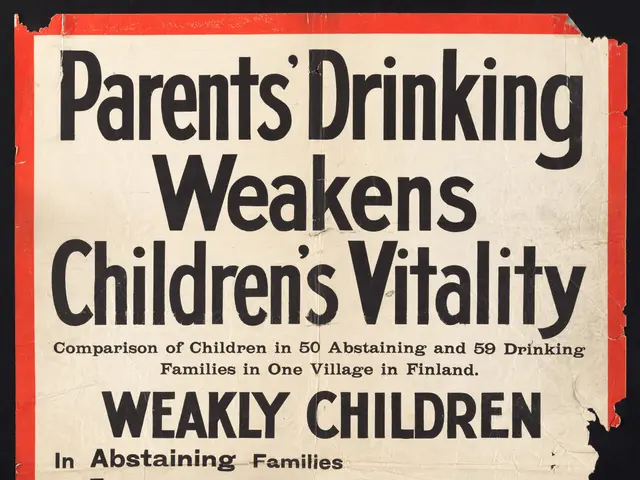Children in Gaza endure psychological distress, exhibiting aggression, anxiety, and bedwetting, due to the long-term effects of war.
In a deeply concerning development, the United Nations Children's Fund (UNICEF) has reported that the number of malnourished children in Gaza is escalating at an alarming rate. The long-term psychological effects of the Israeli-Gaza conflict on children in Gaza are profound and deeply concerning, with research and reports from humanitarian organisations revealing severe and widespread mental health challenges among these children.
The ongoing conflict has left an indelible mark on the psyches of the young generation, shaping their lives with ongoing violence, displacement, and trauma. Key psychological effects include high rates of Post-Traumatic Stress Disorder (PTSD) and emotional distress, chronic trauma and instability, psychological symptoms and behavioural impacts, witnessing violence and loss, and generational trauma.
Children in Gaza are suffering from massive, multifaceted mental health injuries, characterized by chronic trauma exposure, anxiety, PTSD-like symptoms without relief, grief, and loss of childhood safety. These psychological wounds pose severe challenges to their psychological development and well-being into the long term.
The scale of these effects demands urgent, extensive mental health and psychosocial interventions tailored to the ongoing reality of conflict they face daily. Ali Al Attla, a displaced father from Rafah living in Al Mawasi near Khan Younis, has watched his children slip away from the life they once knew, with his daughter hiding bread due to fear of hunger and his son no longer opening his school books.
Dr Hamoda AbedAl'al, a psychologist working with displaced Palestinians, shared stories of children who have become defiant and show signs of extreme psychological stress, including bedwetting and compulsively counting from one to 10. Umm Faraj Abu Zubeida, a Gazan mother, has a seven-year-old son who wakes up screaming at night due to fear of Israeli air strikes. Her 14-year-old son, meanwhile, has lost hope in everything.
Israeli restrictions on the entry of aid into Gaza, along with damage to essential water, sanitation, and health systems, have contributed to a hunger and health crisis in the territory. Inside makeshift shelters in Gaza, children are hiding bread under mattresses, chasing water like a treasure, and experiencing nightly screams from the bereaved and wounded.
Many children in Gaza are forced to become caretakers and providers due to the daily burden of securing food and water. Iman Helmy, a 28-year-old mother of three, has noticed changes in her children's behaviour, with her son hitting other children and her daughter spending her day waiting to fill water containers.
These negative behaviours are attributed to the destruction of psychological and nutritional security, as children had schools, clubs, and daily routines before the conflict. The ongoing conflict in Gaza has led to a rise in negative behaviours among children, including aggression, anxiety, and a complete loss of interest in education.
The family survived the air strike by leaving minutes before the bombing. The abduction of children and forced separation, such as the twin separation documented during the Hamas-Israel conflict, bring additional layers of trauma characterized by anxiety, nightmares, and emotional dysregulation. This is more specifically documented among children taken from Israel but highlights the severe psychological toll wartime trauma exerts on all children involved in this conflict.
The conflict in Gaza has fractured families and left deep emotional wounds on children, many of whom are struggling to grow into young adults while bearing the psychological scars of war. The ongoing crisis demands immediate attention and action to address the mental health needs of these children and ensure their future well-being.
- The escalating number of malnourished children in Gaza is not only a health concern but also raises serious questions about their mental health and well-being, considering the profound psychological effects of the Israeli-Gaza conflict on children in the region.
- A video report on the mental health crisis in Gaza might highlight interviews with psychologists working with displaced Palestinians, parents, and children who share harrowing stories of emotional distress, PTSD, and behavioral changes.
- In the news, there have been reports of Israeli restrictions on aid and damage to essential services in Gaza, which have exacerbated not only the hunger and health crisis in the territory but also the mental health challenges faced by its children.
- As the conflict continues, it's crucial to increase educational programs that focus on health and mental health, providing children in Gaza with the tools they need to cope with the trauma they've faced and promoting their overall well-being and psychological development.





